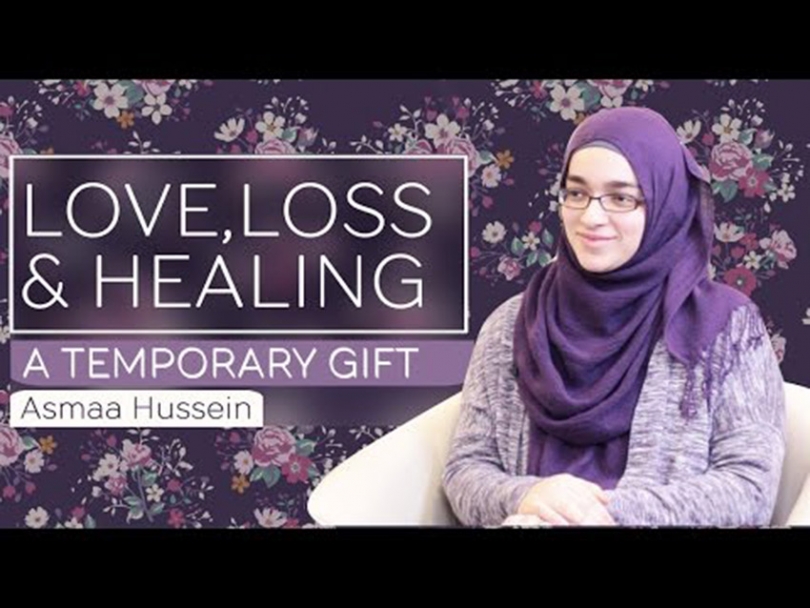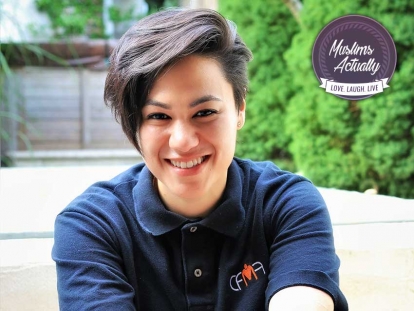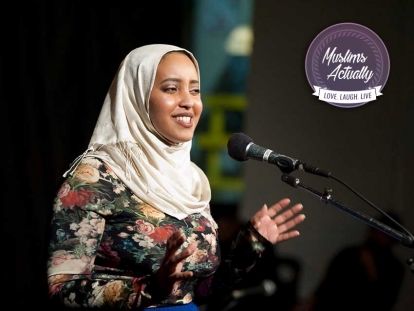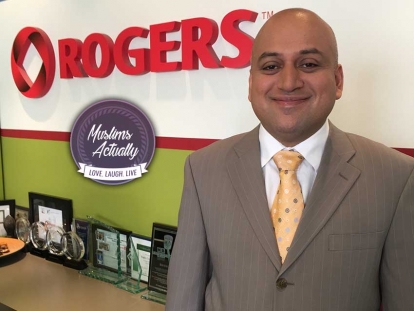 Muslims Actually had the opportunity to interview writer and social worker Asmaa Hussein.
Let the Quran Speak
Muslims Actually had the opportunity to interview writer and social worker Asmaa Hussein.
Let the Quran Speak
Jul
Asmaa Hussein is a writer, registered social worker, and mother of a spirited daughter. She is the author of “A Temporary Gift: Reflections on Love, Loss, and Healing” where she shares her journey of recovery after her husband Amr Kassem was shot and killed while peacefully protesting in Alexandria, Egypt.
Asmaa is also a children’s book author and her children’s titles include “Bismillah Soup” and “Yasmine’s Belly Button.” She is also the creator of Ruqaya’s Bookshelf, a website about Islamic parenting. Asmaa has a BA in English and Sociology and a MA in Social Work. She was born and raised in Toronto, Canada and has been actively involved in the Muslim community there for many years. She currently lives in Toronto with her family.
Where were you born and raised?
I was born and raised in Toronto.
What did you study?
I did a bachelors degree at University of Toronto, studying English and Sociology (class of 2007). I took a year off then went into my masters of social work (also at U of T – class of 2010).
Did you always want to get into social work?
I didn’t always want to get into social work to be honest. For a long time I was pretty clueless about what field I wanted to dedicate my life to. I think what made me turn to social work was the fact that I studied sociology in my undergrad years. In sociology we spent a lot of time unearthing the sources of inequality in society – we talked about the underlying societal reasons for issues of sexism, racism, ableism, and the disparities in socioeconomic status. For all the issues of inequality brought to light, we didn’t much discuss how to fix those problems. After four years of this, I needed to go into a field where I felt that I could affect change – no matter how small.
Were you always a writer?
I’ve always been a writer in a sense. For me, writing has been a way to process my emotions. Just like other people find that art or physical activity de-stresses them, I find relaxation and meaning in writing.
Why do you think writing is an effective way to express your thoughts and feelings?
For me writing is a cleansing process. When I write, I can take the emotions that I’m harboring in my chest and transfer them onto a page. Then I can examine the thoughts and emotions more clearly and decide what to do with them. It’s in this process that I can transform the darkness of pain and struggle into hope.
What was a defining moment that has lead you on your current path?
It’s hard to narrow down my current path to one defining moment. It was more like a series of defining moments – as though God was (and still is) continuously showing me that I needed to keep moving forward.
Just one or two days after my husband was killed, I wrote a Facebook note for my friends and family outlining exactly what happened to him. I just wrote it because I wanted to let the people I loved know I was okay. But I quickly found that the note had gone viral and people I didn’t know suddenly cared about me and my husband. I started receiving messages of support and encouragement from around the world. It was a bit surreal and I didn’t get to all the messages except months later.
For me this was a defining moment at the beginning of my journey because it taught me something significant – it taught me that my story wasn’t less important than anyone else’s. It showed me that I was a part of a larger community that really cared. That support – although it was only “virtual” – was one of the reasons I had enough confidence to keep sharing my writing with others.
What keeps you going?
The knowledge that God’s plans are perfect is what keeps me going. I have found incredible strength in my faith – a faith that embraces our humanity and tells us that despite our weaknesses, God is the most Forgiving, Loving, and Merciful.
What role if at all has family played in your journey?
After my husband was killed, my daughter and I went to live with my parents. They’ve supported me in every way, unconditionally, and I couldn’t be more grateful to them.
What advice would you give other women that are going through hardships?
My advice to women going through hardships is this: you’re stronger than you know. I’m sure that sometimes you feel that the weight of your burdens will crush you, but they can’t and they won’t. You have the strength to find faith in God and seek His help. And you have the strength to move forward, because as God says in the Quran: “On no soul does God place a burden greater than it can bear” (2:286)
Where do you see yourself in 10 years?
For much of the last couple of years, I’ve been living day-to-day and not really thinking about what’s to come in the years down the road. But I would like to see my social work background fuse with my writing ambitions. Arguably, it already has in my latest book (A Temporary Gift: Reflections on Love, Loss, and Healing).
I’d like to explore my writing more and see where it takes me. For a copy of my book visit here website here
Watch an Asmaa's interview with Let the Quran Speaker online
Follow Asmaa Hussein on Twitter here
This article was produced exclusively for Muslim Link and should not be copied without prior permission from the site. For permission, please write to info@muslimlink.ca.















